
What happened?
Europe’s health and climate policies work best together
The role of health policy in the EU has changed profoundly in the last few years. The COVID-19 pandemic helped to underscore the reality that infectious diseases and health emergencies must be tackled through a cross-cutting approach and cannot be de-coupled from environmental and climate considerations.
Jointly promoting public health and tackling climate change requires strong collaboration across European member states, private actors and European institutions, experts said at the European Policy Summit Healthy, Resilient and Stable Societies: Multifaceted Challenges, Cross-Cutting Solutions hosted by Friends of Europe in Brussels on 25 June 2024.
The latest Eurobarometer survey shows that European citizens place supporting public health as one of the most important issues they are concerned about. The future of the health system should be addressed in an integrated manner, bolstering innovation and ensuring equitable access for patients across the continent.
“Access was, and still is today, one of our major issues”, stressed Monica Shaw, Senior-Vice President, Head of European Markets at Bristol Myers Squibb. “Innovation has progressed at amazing speed, now we need to ensure we have the infrastructure to support this.”
Nathalie Berger, Director for Support to Member States’ Reforms at the European Commission Directorate-General for Structural Reform Support, pointed to the May 2024 Communication on the European Health Union, saying “Without a coordinated approach to healthcare, we lose insights gained from the Coronavirus pandemic.”
Tomislav Sokol and Vlad Voiculescu, both members of the European Parliament, added they would strongly support the creation of a new Health Committee in the Parliament to maintain health as a priority in European policymaking. Vlad Voiculescu went on to advocate for a more European centralised approach to healthcare, as he stressed that Member States could not solve critical issues such as workforce shortages by themselves.
The European Policy Summit heard that such a coordinated approach will promote EU priorities, from competitiveness to gender diversity, the green and the digital transition.
“We can’t look at climate risks in isolation,” said Elena Višnar Malinovská, Head of the Climate Adaptation & Resilience Unit at the European Commission Directorate-General for Climate Action. She joked that “Risks do often collaborate better than our policies.”
Speakers also said a cross-sector approach would deliver better results considering the complexity of the healthcare sector. “We need to understand what the environmental footprint of the entire patient journey is,” said Robert Metzke, Senior Vice-President and Global Head of Sustainability at Philips. “Collaboration is vital”, supporting hospitals in reducing their footprint and creating a patient-centric approach.
These points were echoed by Evelyn Brakema, Chair of the Green Health Alliance. Reaching thousands of practitioners in all parts of the healthcare sector, Brakema stressed “We wanted to accelerate the green transition, by using health as an argument.
This event took place in Brussels and was also available to a wider audience via livestream. Follow us on Twitter, LinkedIn or Instagram.
Related content:
Our events include photos, audio and video recording that we might use for promotional purposes. By registering, you give your permission to use your image. Should you have any questions, please contact us.
PHOTO CREDIT: Madcat_Madlove/Shutterstock
Schedule
“CAN TECHNOLOGY MAKE HEALTHCARE MORE HUMAN AND SUSTAINABLE?”
Chronic kidney disease is one of the fastest-growing health challenges, projected to become the fifth leading cause of death globally by 2040. Nephrology care, especially dialysis, imposes a significant burden through excessive water consumption, greenhouse gas emissions, and waste production while often limiting patient quality of life. At the intersection of healthcare policies, the Green Deal, and the Chips Act lies a promising solution: Artificial Kidney Technology.
With Fokko Wieringa, Principal Scientist at imec the Netherlands, leading research hub for nano- and digital technology innovation
ARTIFICIAL INTELLIGENCE (AI) IN HEALTHCARE; SCARY OR HOLY GRAIL?
In Europe, millions of people struggle daily with chronic respiratory diseases such as asthma or chronic obstructive pulmonary disease (COPD). Emerging AI systems have the potential to revolutionise the detection and categorisation of lung disorders by using spirometry data. These advanced tools can evaluate data quality, provide immediate feedback, and enhance the overall management of respiratory conditions.
Can AI truly support healthcare professionals and improve patient outcomes?
With Karolien Van Orshoven, Clinical Project Manager at ArtiQ, an innovative AI software company dedicated to enhancing the diagnosis and monitoring of patients with respiratory conditions
CAN LONG-TERM HEALTH STUDIES SHIFT HEALTHCARE FROM CURATION TO PREVENTION?
In a groundbreaking initiative, Marthe De Boevre has launched the largest health study ever conducted in Belgium. UZ Gent, Ghent University, and imec are collaborating to medically monitor 20,000 individuals over the age of 45 for twenty years. This ambitious research aims to address the current imbalance in healthcare, which focuses predominantly on curative measures. By gathering extensive data on ageing, the study aspires to pave the way for more preventive healthcare strategies and improve long-term health outcomes.
With Marthe De Boevre, Professor at Ghent University and leading expert in clinical mycotoxicology
Health has no borders, yet our ‘European Health Union’ is not fully integrated. Across the EU, we see unequal access to healthcare. Geographic origin and socioeconomic status still represent crucial elements defining patients’ capacity to be treated fairly and efficiently in a system that is not always suited to their needs. Providing access to innovative treatments and technologies, in areas such as immuno-oncology and cell therapy, will be paramount to improve wellbeing in Europe.
The complex and interconnected challenges that Europe faces today require a collective effort to halt the ongoing decline of pharmaceutical innovation, strengthen the efforts in research and development, and take advantage of emerging digital technologies and data in health solutions. While these technological advancements will accelerate innovation, transform the speed of public healthcare delivery and reduce waste in the system, innovators will have the responsibility to develop and deploy solutions that are both clinically safe and environmentally sustainable.
Europe is home to industry leaders who are delivering significant advancements in biotechnology, health and pharmaceutical breakthroughs, but there continues to be a lag that affects how these innovations are brought to market. Improving the European innovation landscape is essential to improve European competitiveness as it bolsters quality of life, economic performances due to increased productivity and cost savings, and crisis preparedness, while also providing patients with access to cutting-edge healthcare technologies and medications. Addressing this lag is Europe’s chance to make competitiveness work for the social good by directly impacting the well-being of communities and the resilience of the workforce.
Questions for consideration include:
- If Europe’s future is to be science-led how can we work together to ensure we
can live better for longer? - How do we ensure healthcare sustainability by leaning into innovation?
- What are the challenges and opportunities of advancing healthcare innovation in Europe? How can we make sure that science plays a central role in the policies of the next European Mandate?
Speakers
Nathalie Berger
Director for support to member states’ reforms at the European Commission Directorate-General for Structural Reform Support
Conny Helder
Dutch Minister of Health, Welfare and Sports
Monica Shaw
Senior-Vice President, Head of European Markets at Bristol Myers Squibb (BMS)
Tomislav Sokol
Member of the European Parliament Committee on Public Health
Vlad Voiculescu (pre-summit dinner)
Member of the European Parliament Committee on Public Health and chair of the Intergroup on Cancer and Rare Diseases, former Romanian health minister and European Young Leader (EYL40)
Jakub Dvořáček
Deputy Minister, Ministry of Health of the Czech Republic
Moderator
Dharmendra Kanani
Chief Operating Officer and Chief Spokesperson of Friends of Europe
On a global scale, the measures and solutions from national climate plans are insufficient to prevent a rise in global temperature, resulting in an increased frequency and intensity of natural hazards. Over the coming decades, extreme weather conditions and natural disasters will make parts of our planet increasingly uninhabitable. How will these conditions affect our health?
With
Gaia Vince
Award-winning science writer, journalist, broadcaster and author of "Nomad Century"
The pandemic underscored the reality that, in general, health emergencies should be tackled through an intra-institutional, collaborative and cross-cutting approach. In the last few years, healthcare systems have been under strain to face these challenges while simultaneously having to decarbonise, adapt to resource depletion, and innovate to sustain themselves and deliver quality care to those in need. In 2019, a Health Care Without Harm report calculated that healthcare’s total carbon footprint is equivalent to the fifth largest emitter on the planet. At the same time, climate change is a human health threat. As global temperatures rise, so do the human health risks from extreme weather events, heat stress, droughts, flooding, and the evolution of climate-sensitive diseases.
There is an opportunity for the next EU mandate to progress on the integration of health policy into its environmental and climate objectives. For example, digital innovation and increased circularity in the medical technology sector can both support the EU’s transition to climate neutrality and improve the quality and efficiency of public health, reinforcing the nexus between health and climate outcomes.
Questions for consideration include:
- How can health policy find a home in the European Green Deal?
- Are European stakeholders understanding the co-benefits of climate action for
public health in Europe? What do citizens have to say on this? - Are there misconceptions about costs and patient safety when it comes to
decarbonisation in the medical sector?
Speakers
Hosams Abu Meri
Minister for Health of the Republic of Latvia
Evelyn Brakema
Chair and Co-Founder of the Green Health Alliance
Sarada Das
Secretary General at the Standing Committee of European Doctors (CPME)
Elena Višnar Malinovská
Head of the climate adaptation & resilience Unit at the European Commission Directorate-General for Climate Action (DG CLIMA)
Robert Metzke
Senior Vice-President and Global Head of Sustainability at Philips
Marina Romanello
Executive Director of Lancet Countdown: Tracking Progress on Health and Climate Change and Senior Research Fellow
Moderator
Dharmendra Kanani
Chief Operating Officer and Chief Spokesperson of Friends of Europe
Speakers
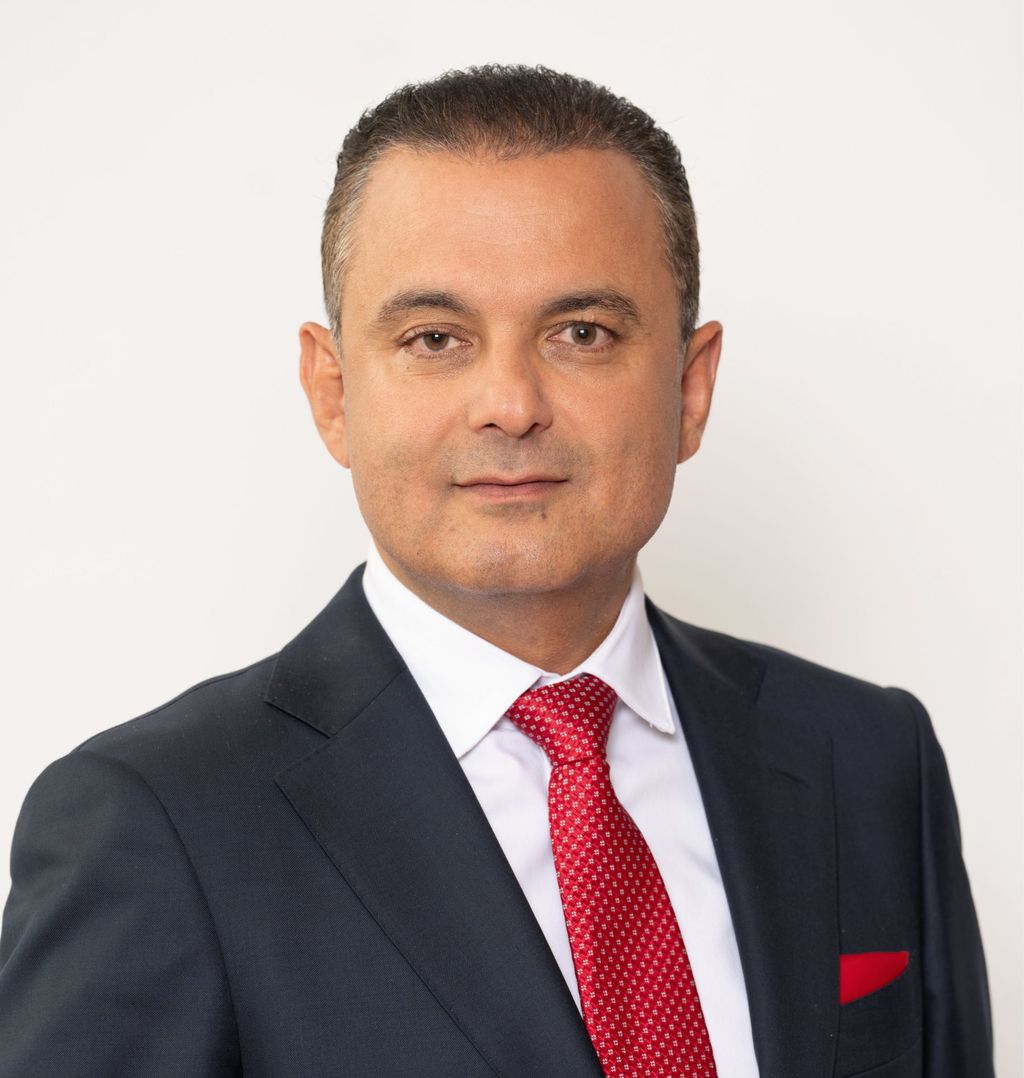
Minister for Health of the Republic of Latvia
Hosams Abu Meri has served as Minister for Health of the Republic of Latvia since September 2023. He has been actively involved in Latvian politics since 2011 when he became Advisor to the Minister of the Interior. He was Parliamentary Secretary in the Ministry of Welfare, Chairman of the “Unity” faction in the parliament, and served as Advisor to the Prime Minister for Integration Affairs. Abu Meri is a distinguished gastroenterologist, specializing in endoscopy. He qualified as a medical doctor at the Medical Academy of Latvia, before gaining diplomas in internal medicine and gastroenterology from the University of Latvia.

Director for support to member states’ reforms at the European Commission Directorate-General for Structural Reform Support
Nathalie Berger leads the DG REFORM Directorate that provides strategic support to growth-enhancing reforms in the member states. Prior to assuming this position, Berger worked as a Head of Unit at DG FISMA, where she led several regulatory reforms in response to the great financial crisis. As Deputy Director, she was in charge of Banking Regulation and Supervision, and representation at the Basel Committee and the European Banking Authority. When she joined the European Commission over two decades ago, Berger was mainly responsible for the development of Commission implementing powers in the field of financial services. Previously, she also worked as an expert in company law and corporate governance, and as a Deputy Head of Unit in charge of interinstitutional Relations and policy coordination. Berger started her career in academia, as a researcher and lecturer, and is the author of several articles and a book on European law and policies.
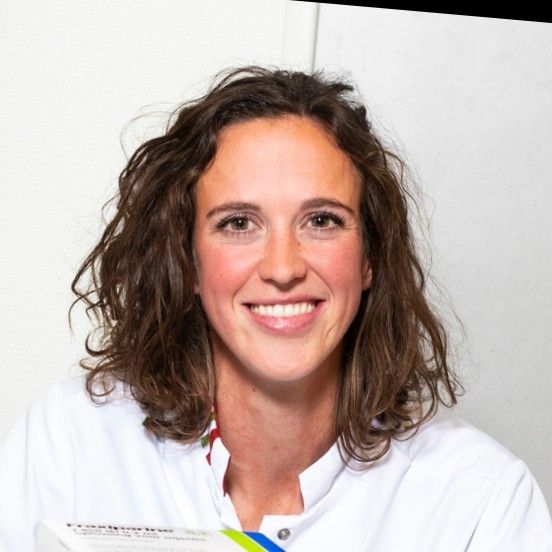
Chair and Co-Founder of the Green Health Alliance
Evelyn Brakema, MD, PhD, is chair and co-founder of the Dutch Green Health Alliance, a grassroots alliance that mobilises health professionals to catalyse the transition to sustainability in healthcare and to promote Planetary Health in society. The alliance’s 200+ affiliated committees of green health professionals range from students to specialists, and from psychologists to urologists, whose collaborative efforts contributed to the accelerated implementation of green practices locally, and to the integration of Planetary Health in policy internationally. Brakema is also a GP resident and researcher in sustainable healthcare at the Leiden University Medical Centre in the Netherlands. Notably, she was awarded the Catharina Pijls Prize for national best health thesis in 2022 and 2023.

Secretary General at the Standing Committee of European Doctors (CPME)
Sarada Das currently holds the position of Secretary General of the CPME, which represents national medical associations across Europe and is committed to contributing the medical profession’s point of view to EU and European policy-making through pro-active cooperation on a wide range of health and healthcare-related issues. Das has been working for CPME for over a decade and has notably assisted the CPME membership in its activities relating to professional practice and ethics.

Professor and Principal Investigator at Ghent University's Centre of Excellence in Mycotoxicology & Public Health
Marthe De Boevre (PhD) currently serves as Professor and Principal Investigator at Ghent University’s Centre of Excellence in Mycotoxicology & Public Health (CEMPH). Her work on mycotoxins is highly esteemed within the international scientific community and contributed to EFSA’s scientific opinion on modified mycotoxins. As the head of the CEMPH, De Boevre specialises in advanced analytical techniques for measuring small molecules in human biospecimens. Her research mainly focuses on the clinical impact of mycotoxins, particularly in cancer risk and growth retardation, through large-scale cohort studies. De Boevre’s innovative approach has led to groundbreaking studies on the toxicokinetics of deoxynivalenol and the use of non-invasive microsampling techniques for vulnerable populations. Her leadership and collaborative spirit have attracted substantial investment and public engagement, establishing her as a prominent figure in mycotoxin research and preventive health strategies.
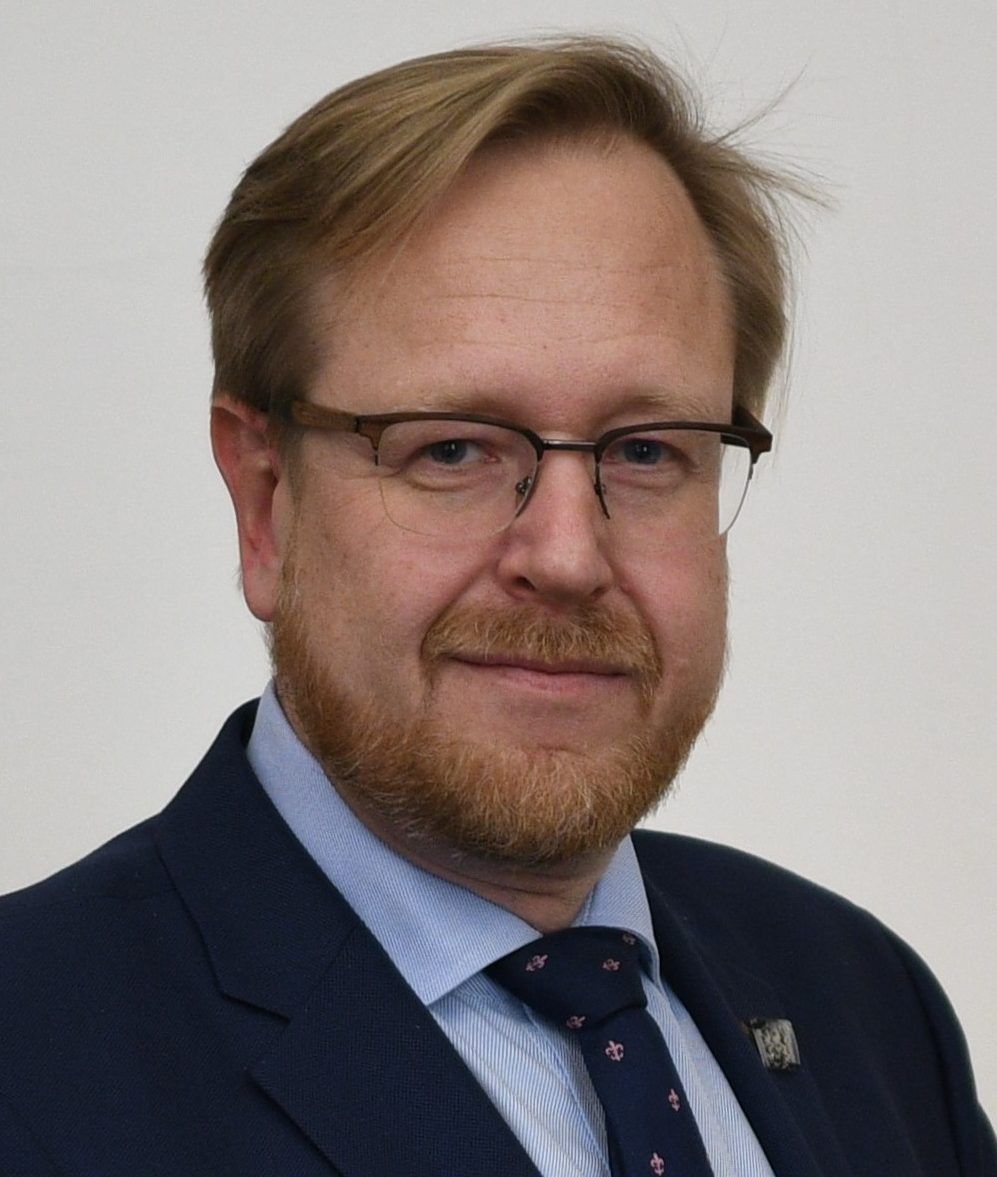
Deputy Minister, Ministry of Health of the Czech Republic
Prior to assuming his current role as Czech Deputy Minister of Health, for which he is mainly responsible for pharmaceuticals, medical devices, and the implementation of the National Recovery Plan, Jakub Dvořáček served as executive director of the Association of the Innovative Pharmaceutical Industry. Previously, he served as director of the Investment Division in CzechInvest, an agency at the Ministry of Industry and Trade, involved in the promotion of foreign direct investments to the Czech Republic. Concurrently, he served as an advisor to the Czech Minister of Education, Youth and Sport. Dvořáček also held several management positions in Caritas Czech Republic and managed significant health awareness programs, development, and humanitarian projects around the world.

Dutch Minister of Health, Welfare and Sports
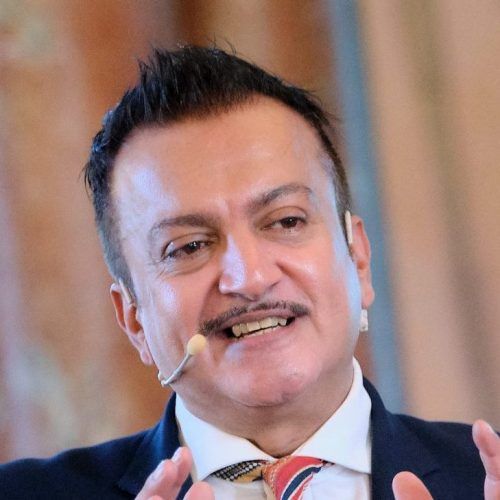
Chief Operating Officer and Chief Spokesperson of Friends of Europe
Prior to joining Friends of Europe, Dharmendra Kanani was director of policy at the European Foundation Centre (EFC). He was the England director at the Big Lottery Fund, the largest independent funder in the UK and fourth largest in the world. Dharmendra has held senior positions in the public and voluntary sectors and advisor to numerous ministerial policy initiatives across the UK.
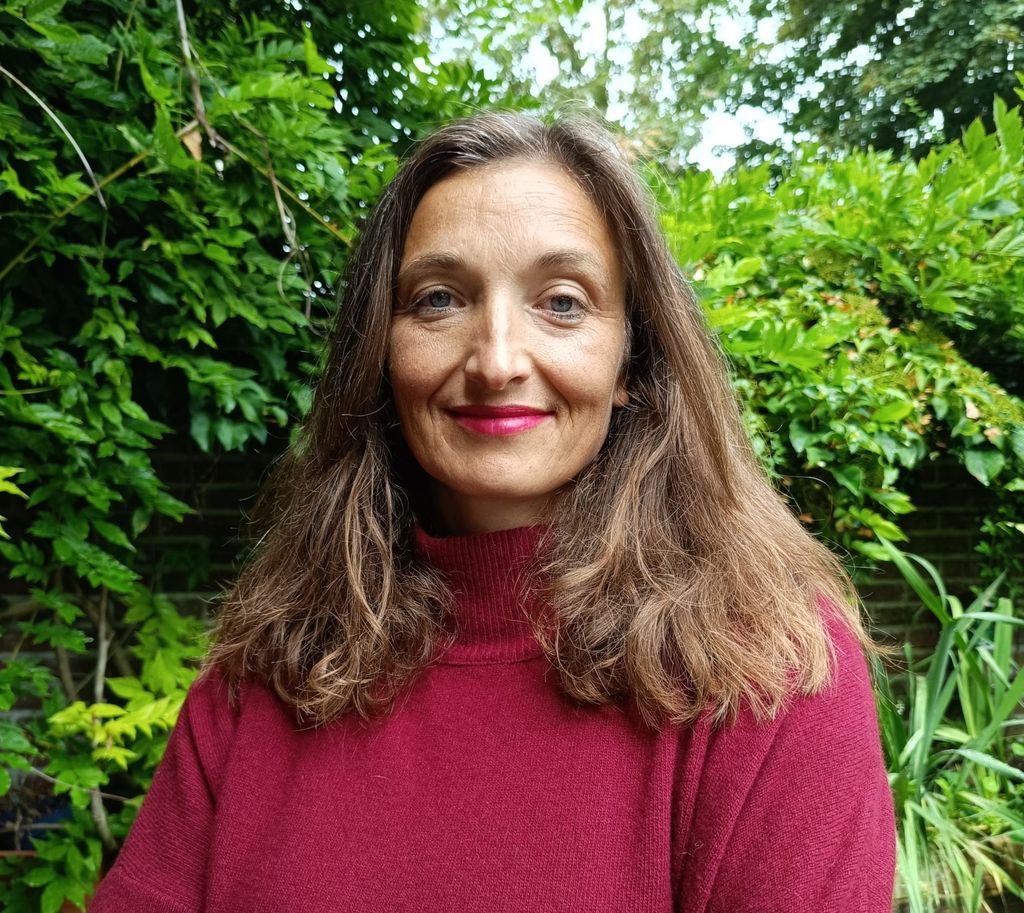
Head of the climate adaptation & resilience Unit at the European Commission Directorate-General for Climate Action (DG CLIMA)
Elena Višnar Malinovská is the Head of the climate adaptation & resilience Unit at the European Commission’s DG CLIMA. In her role, she leads the work on the EU strategy on climate adaptation, the Horizon Europe Mission on adaptation and first European Climate Risk Assessment.
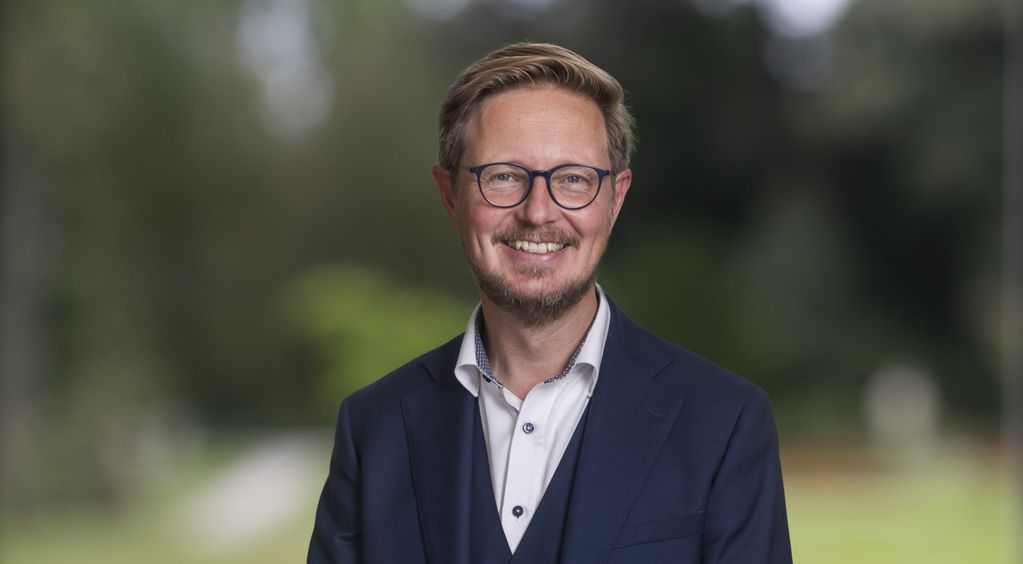
Senior Vice-President and Global Head of Sustainability at Philips
Robert Metzke is the Global Head of Sustainability at Philips, leading the company’s strategy towards innovative, sustainable business models and embedding sustainable ways of working across the value chain. His focus includes driving activities related to Philips’ environmental responsibility, such as climate action and circular economy, as well as expanding access to healthcare in underserved communities. Before joining Philips, he gained extensive experience in strategy and innovation at McKinsey & Company, with a background in journalism, science publishing, and academic research.

Executive Director of Lancet Countdown: Tracking Progress on Health and Climate Change and Senior Research Fellow
Marina Romanello is the Executive Director of the Lancet Countdown and a climate change and health researcher at UCL. Romanello’s research background spans from toxicology to environmental health and climate change, and she has previously carried out her research at the Instituto Tecnologico de Buenos Aires, the University of Cambridge and the Francis Crick Institute. Working as a consultant for the NHS, Romanello led a team of researchers in developing its net zero commitments and is a member of the working group on health co-benefits in climate change mitigation policies of Italy’s Superior Health Council.

Senior-Vice President, Head of European Markets at Bristol Myers Squibb (BMS)
In her role of Senior Vice-President, Head of European Markets, Monica Shaw leads BMS’s business across Europe, with a portfolio of innovative medicines spanning oncology, hematology, cardiovascular, immunology, cell therapy and neurology. Shaw joined BMS from Oncopeptides, a global biotechnology company, where she served as Chief Executive Officer. She has held several international leadership positions at Leo Pharma, GSK/ViiV Healthcare, Merck Serono and Novartis, with experience across immunology, dermatology, oncology, virology, neurology and rare diseases. Previously, Shaw also worked as a doctor at the UK’s National Health Service.
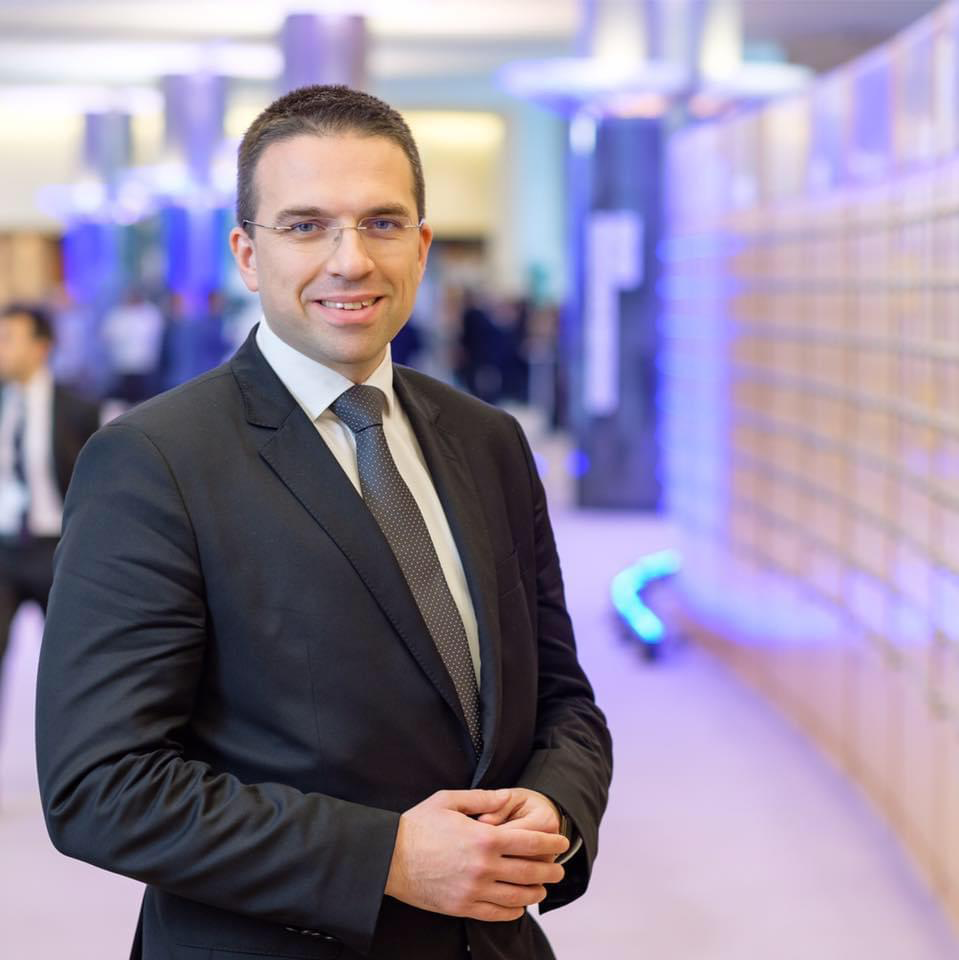
Member of the European Parliament Committee on Public Health
Tomislav Sokol currently serves as a Member of the European Parliament Committee on Public Health. Previously, he was the European People’s Party (EPP) Coordinator in the Committee on Public Health (SANT) and Vice-Coordinator in Special Committee on the COVID-19 pandemic: lessons learned and recommendations for the future (COVI). He also sat on the Committee on the Environment, Public Health and Food Safety (ENVI), among others, and was the main rapporteur for the European Health Data Space and EPP shadow rapporteur for pharmaceutical legislation (regulation). Prior to Brussels, he was a member of the Croatian parliament and an assistant minister in the Ministry of Science and Education. Sokol’s areas of professional interest include the law of the European common market, as well as health, competition, social and trade law.
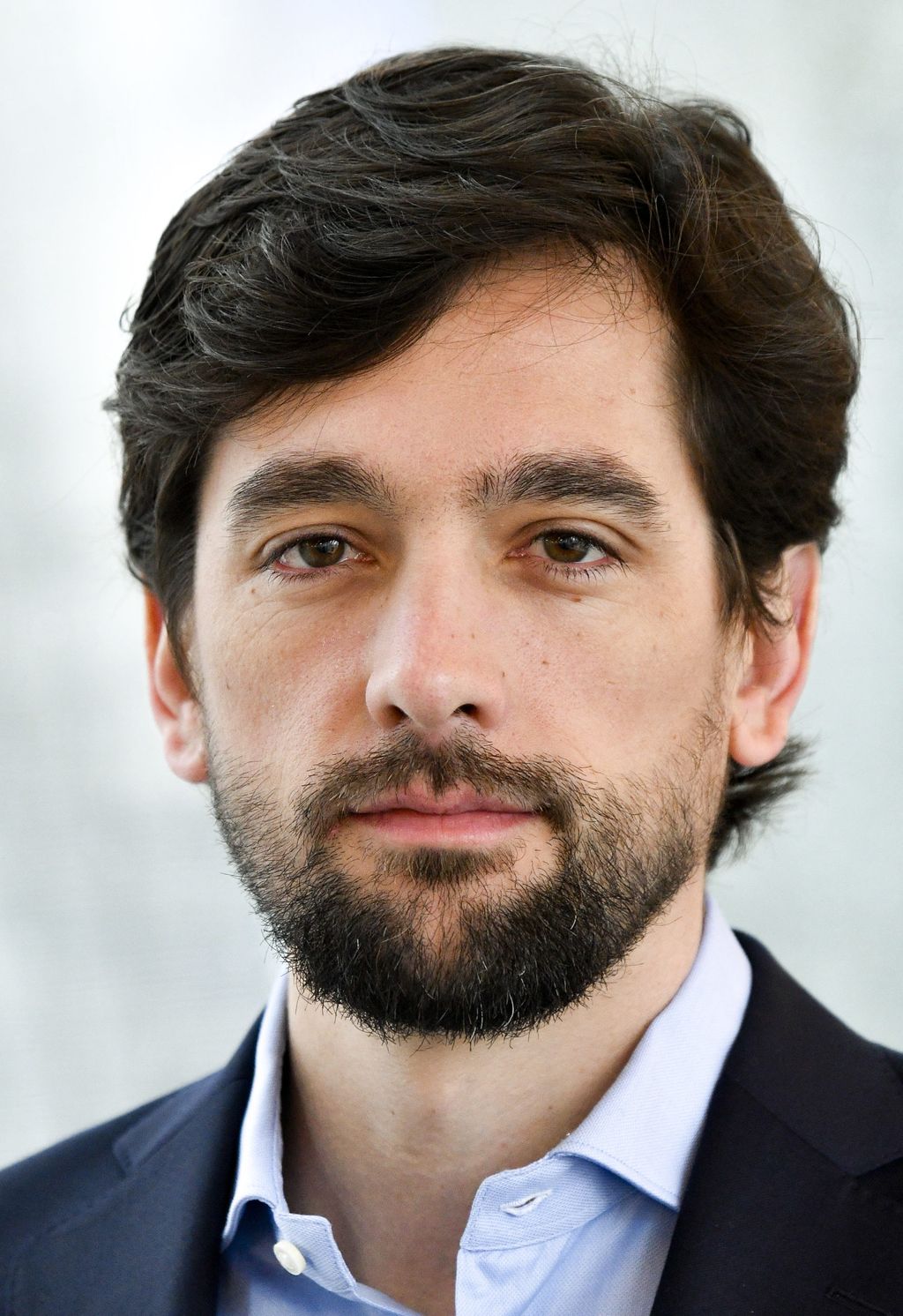
Member of the European Parliament and former chair of the Legal Affairs Committee (JURI)
Adrián Vázquez Lázara is a prominent member of the European Parliament and has served as the Legal Affairs Committee President since 2020. He has made significant legislative contributions, including work on the Corporate Due Diligence Directive and the patents package. Vázquez is also a substitute member of the Agriculture and Rural Development Committee, focusing on the Common Agricultural Policy reform and legislative proposals within the European Green Deal. Apart from his parliamentary work, Vázquez has an extensive background in international relations and is currently a lecturer at ESADE and the Centro Universitario Cardenal Cisneros.
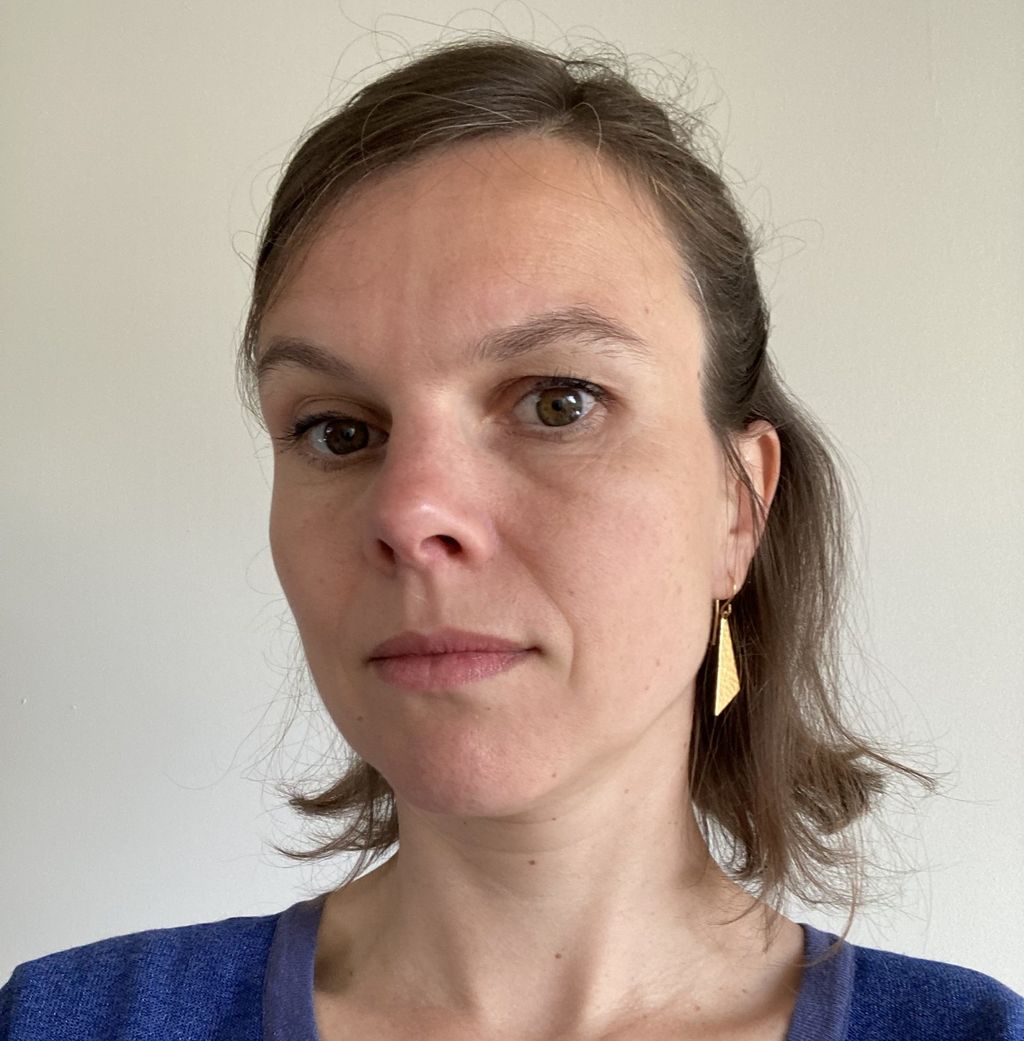
Clinical project manager and Team Lead at ArtiQ
Karolien Van Orshoven is a Clinical Project Manager and Team Lead at ArtiQ, an AI software designed to assist healthcare professionals in conducting and interpreting spirometry and pulmonary function tests. She also serves as a lecturer in biomedical sciences at the University of Namur. With over 15 years of experience in clinical research across various organisations and therapeutic areas, Van Orshoven has gained expertise in drug development, clinical research, quality management and people management. She started her career with fundamental research at the University of Leuven.

Award-winning science writer, journalist, broadcaster and author of "Nomad Century"
Gaia Vince is a science writer and broadcaster, who explores the interplay between human systems and the planetary environment. She is an Honorary Senior Research Fellow at the Anthropocene Institute at University College London (UCL) and a host of BBC Inside Science. Her first book, “Adventures In The Anthropocene”, won the Royal Society Science Book of the Year Prize. Her latest book, “Nomad Century: How To Survive The Climate Upheaval”, explores global migration and planetary restoration in a radical call to arms.
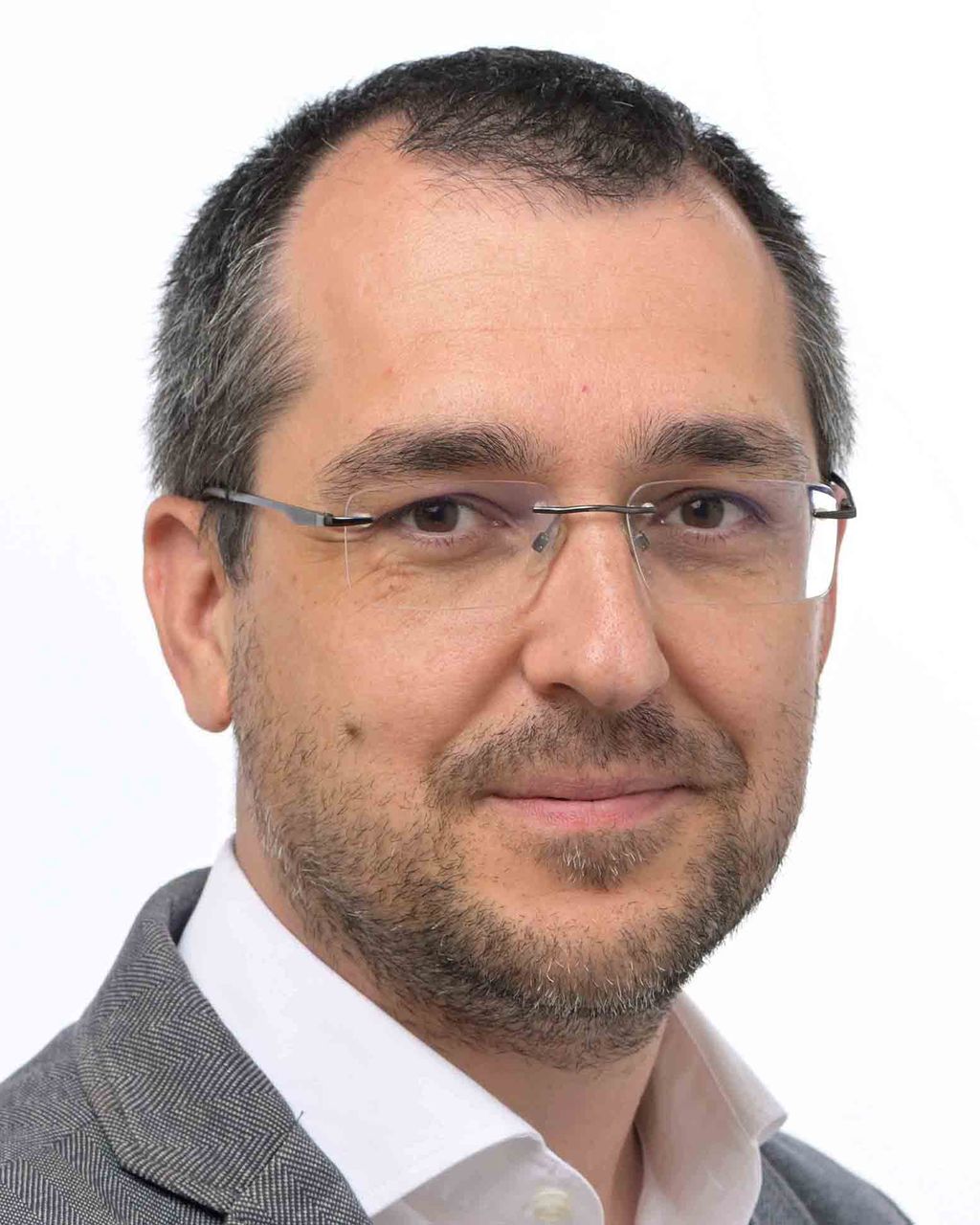
Member of the European Parliament Committee on Public Health and chair of the Intergroup on Cancer and Rare Diseases, former Romanian health minister and European Young Leader (EYL40)
Vlad Voiculescu is a member of the European Parliament, health policy expert and patient advocate, who until recently has served as the Romanian minister of health. After pursuing a career in finance, Voiculescu became active in public service, serving as the Romanian Finance Minister’s chief of staff before becoming the minister of health in the Dacian Cioloș government. He has been involved in patient advocacy, both at the national and European levels for over a decade. Voiculescu is the founder of an international network of volunteers that helped over 2,500 cancer patients receive essential medicines that were missing in Romania, a story that featured in the HBO documentary The Network’. He is also the Co-Founder of MagiCAMP, which seeks to provide support to children diagnosed with cancer and other serious illnesses. For this work, the European Parliament awarded Voiculescu its ‘European Citizen’s Prize.’

Principal Scientist at imec the Netherlands and Associate professor of Medical Technology at University Medical Center Utrecht
Fokko Pieter Wieringa (PhD) is Principal Scientist within the Health Department of imec the Netherlands, a leading research hub for nano- and digital technology innovation, and a part-time associate professor of Medical Technology at University Medical Center Utrecht. His career in the field of medical technology spans over three decades and he is notably (co)inventor of 26 granted patents. Within imec, Wieringa works on the development of Autonomous Therapeutic Systems. He is a core driver of the Dutch Kidney Foundations’ initiative to develop the NextKidney portable hemodialysis machine and a liaison to the international roadmap of the FDA/ASN Kidney Health Initiative (KHI) towards an implantable artificial kidney. Wieringa also chairs Work Group 3 “Breakthrough Innovation” of the European Kidney Health Alliance (EKHA). In addition, he represents the Netherlands within the worldwide standardisation organisations IEC, ISO and AAMI, regarding safety & essential performance of dialysis equipment and is a co-founder of KIDNEW.
Partners
Co-organised with
Activities
Europe's moment: advancing clinical research and health innovation
Next event In person & online

- Area of Expertise
- Sustainable Livelihoods
Re-imagining Europe's health systems
Past event In person & livestreamed

- Area of Expertise
- Sustainable Livelihoods
Health check for a competitive medical technology sector in Europe
Past event In person

- Area of Expertise
- Sustainable Livelihoods
Healthy ageing for Europe's future: the value of adult immunisation
Past event In person & livestreamed

- Area of Expertise
- Sustainable Livelihoods
Policy Voices | Re-imagining Europe’s health systems
- Category
- Podcast
- Area of Expertise
- Sustainable Livelihoods
Financing the green and just transition: towards further partnerships…
- Category
- #CriticalThinking
- Author
- By Sebastián Nieto-Parra
Reclaiming medicines and health innovation for our health
- Category
- #CriticalThinking
- Author
- By Els Torreele
Hidden biases in public health research: why we are failing our most…
- Category
- #CriticalThinking
- Author
- By Marthe De Boevre

- Area of Expertise
- Sustainable Livelihoods
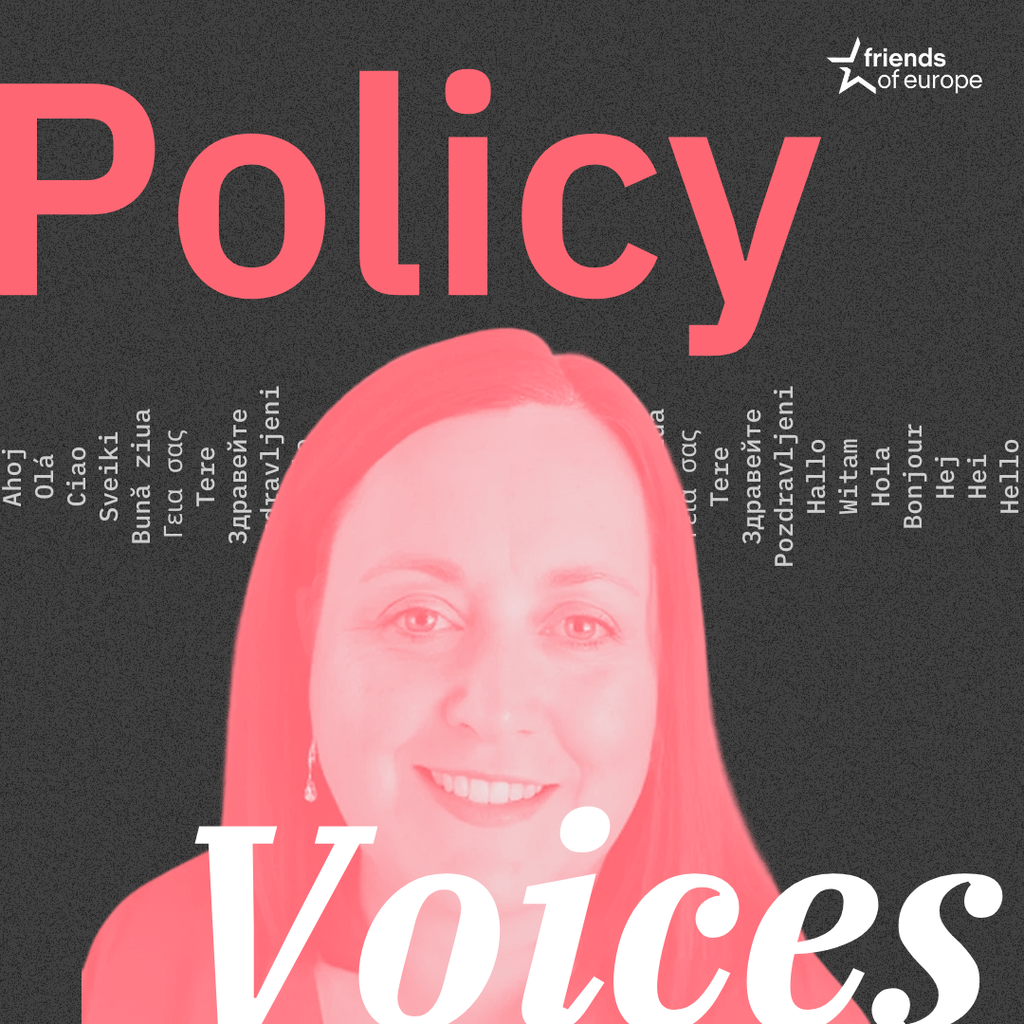
- Area of Expertise
- Sustainable Livelihoods

- Area of Expertise
- Sustainable Livelihoods
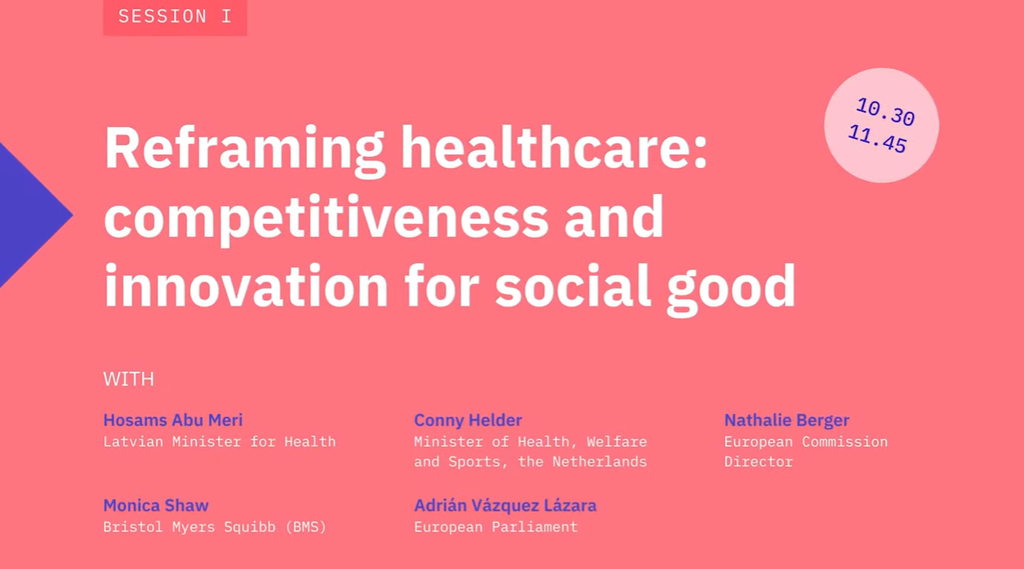
- Area of Expertise
- Sustainable Livelihoods
Continue
the debate on
- Debating Europe





